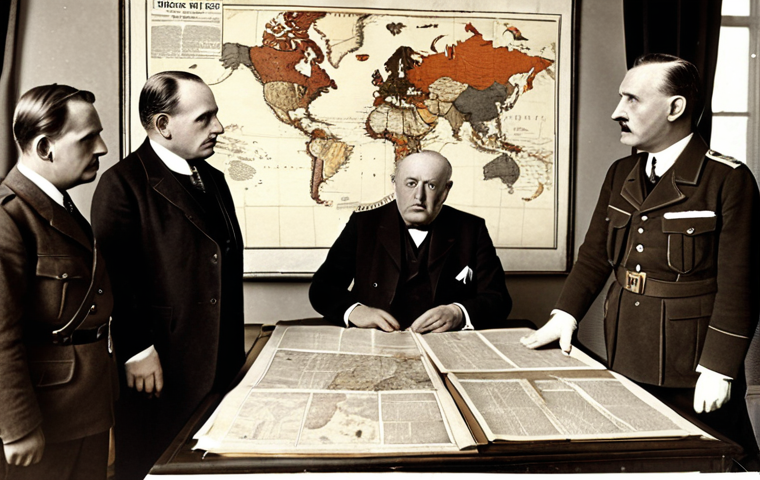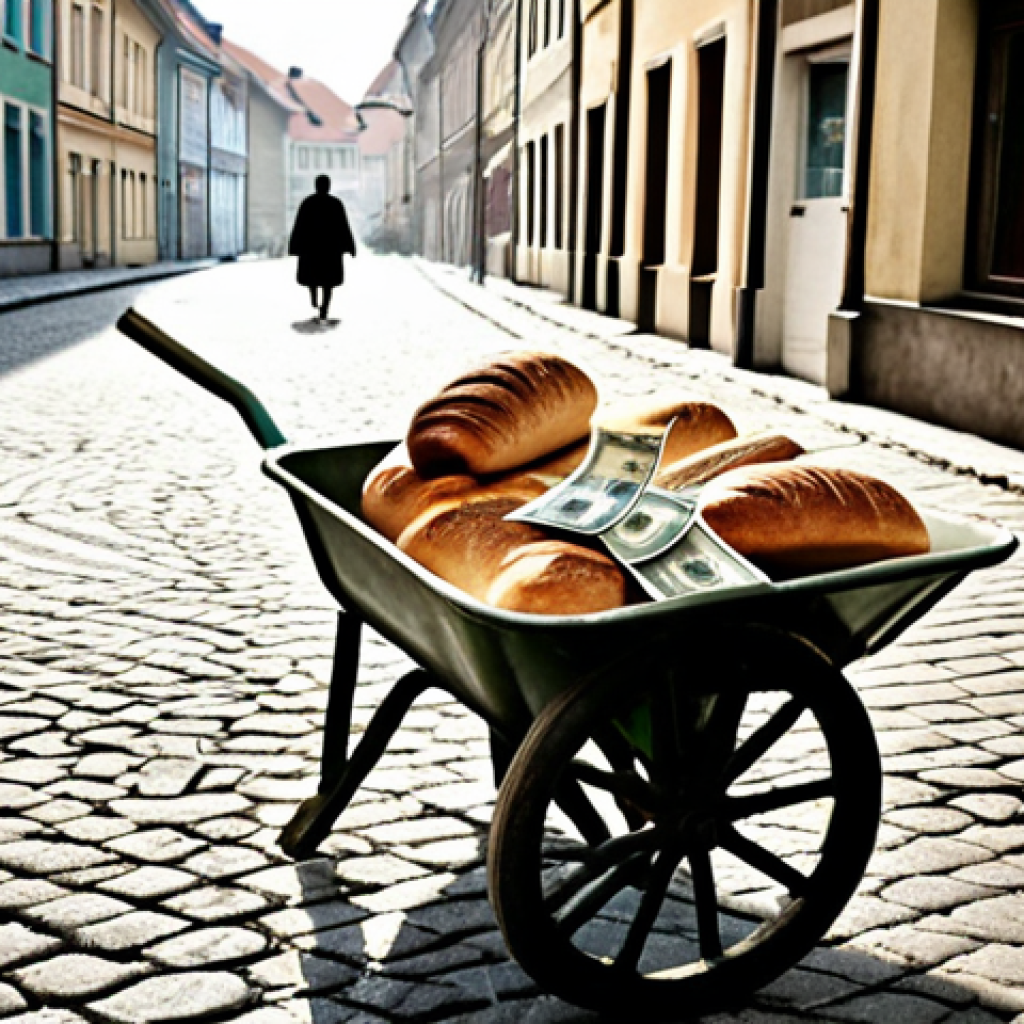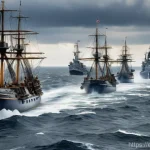World War I, often dubbed “the war to end all wars,” tragically reshaped Europe and left Germany reeling in its wake. The conflict’s devastating impact extended far beyond the battlefield, plunging the nation into economic turmoil and social unrest.
Imagine a country struggling under the weight of immense reparations, hyperinflation eroding savings, and a population grappling with loss and disillusionment.
The seeds of future conflict were undeniably sown in the aftermath of this great war. It was a pivotal period that would shape the course of the 20th century, influencing everything from political ideologies to global power dynamics.
Let’s delve deeper and discover the specific details. Let’s explore the topic in detail below.
The echoes of cannon fire faded, leaving behind a landscape scarred by trenches and a nation grappling with profound consequences. World War I didn’t just end on the 11th hour of the 11th day of the 11th month; it marked the start of a tumultuous new chapter for Germany.
The Treaty of Versailles, meant to ensure peace, instead planted the seeds of resentment and instability that would haunt the country for decades to come.
The Crushing Weight of Reparations

The Treaty of Versailles placed the entire burden of war guilt squarely on Germany’s shoulders, a decision that carried enormous financial implications.
Imagine being held responsible for the damages of an entire war – that’s essentially what happened to Germany.
The Unpayable Debt
Germany was saddled with staggering reparation payments to the Allied powers. The initial sums were astronomical, far exceeding the country’s ability to pay.
It was like being asked to pay off a mortgage that was ten times your annual salary. This put immense strain on the German economy, hindering its recovery and fueling public discontent.
The Allies initially demanded 269 billion gold marks, a figure so absurdly high it was quickly deemed unrealistic. Even after revisions, the burden remained crushing, especially as Germany’s industrial capacity was also being hampered by territorial losses and restrictions.
Hyperinflation and Economic Collapse
To meet these obligations, the German government resorted to printing more money, a move that triggered hyperinflation. I remember my grandfather telling me stories about wheelbarrows full of cash being needed to buy a loaf of bread.
Savings were wiped out, the middle class was decimated, and social unrest grew exponentially. The value of the mark plummeted to unimaginable lows; at one point, it took trillions of marks to buy a single U.S.
dollar. The economic devastation was so profound that it eroded public trust in the government and institutions, creating fertile ground for extremist ideologies to take root.
The Impact on Everyday Life
The hyperinflation wasn’t just an economic statistic; it was a lived reality for millions of Germans. People struggled to afford basic necessities, and the uncertainty made it difficult to plan for the future.
This eroded the social fabric, leading to widespread disillusionment and a sense of hopelessness. It’s hard to imagine the anxiety of seeing your life savings become worthless overnight.
Families were torn apart, social structures crumbled, and a collective sense of despair permeated society. The emotional toll was as devastating as the economic one.
Territorial Losses and National Humiliation
Beyond the financial burden, Germany also suffered significant territorial losses, further fueling national humiliation and resentment.
Stripped of Land and Resources
Germany lost valuable territories to neighboring countries, including Alsace-Lorraine to France and parts of Prussia to Poland. These regions were not just chunks of land; they were often rich in resources and held significant cultural importance.
It was like having pieces of your national identity carved away. The loss of industrial areas like the Saarland, rich in coal deposits, further crippled the German economy and hampered its ability to meet reparation payments.
The redrawing of borders felt like a punishment, a constant reminder of Germany’s defeat and diminished status.
The Rhineland Occupation
The Rhineland, a strategically important region bordering France, was demilitarized and occupied by Allied forces. This was a deep wound to German pride and a constant source of tension.
It was like having foreign soldiers patrolling your streets. The occupation was meant to ensure Germany’s compliance with the treaty, but it instead fostered resentment and a desire for revenge.
The presence of foreign troops on German soil was a constant reminder of their defeat and subjugation.
The Loss of Colonies
Germany was also stripped of its overseas colonies, further diminishing its international standing. These colonies, though not always profitable, were symbols of national power and prestige.
Losing them felt like a blow to Germany’s global ambitions. The colonial territories were redistributed among the Allied powers, further solidifying their dominance and highlighting Germany’s diminished role on the world stage.
This loss of colonial influence was a significant blow to German national pride and a constant source of humiliation.
Social Disruption and Political Instability
The war and its aftermath caused profound social disruption and political instability in Germany.
The Rise of Extremist Ideologies
The economic hardship, national humiliation, and political instability created fertile ground for extremist ideologies to flourish. People were desperate for solutions and susceptible to radical ideas.
It was like a perfect storm brewing. The Nazi Party, with its promises of national renewal and revenge, gained increasing support. Other extremist groups, both on the left and right, also capitalized on the widespread discontent, further destabilizing the political landscape.
The moderate voices struggled to be heard amidst the growing chorus of radicalism.
The Weakness of the Weimar Republic
The Weimar Republic, Germany’s post-war government, was plagued by weakness and instability. It was a noble attempt at democracy, but it faced enormous challenges from the start.
It was like building a house on shaky foundations. The Republic was constantly under attack from both the left and the right, and its leaders struggled to maintain order and address the country’s problems.
The constant political infighting and instability eroded public trust in the government, making it vulnerable to extremist movements.
The Psychological Impact of War
The war left a deep psychological scar on the German population. Millions of soldiers returned home traumatized and disillusioned. The loss of a generation had far-reaching consequences.
It was like a collective trauma that haunted the nation. Many struggled to readjust to civilian life, and the widespread unemployment and economic hardship only exacerbated their suffering.
The psychological wounds of war contributed to the overall sense of despair and instability that plagued Germany in the post-war years.
The Seeds of Future Conflict
The conditions created in the aftermath of World War I in Germany undoubtedly contributed to the outbreak of World War II.
Resentment and Revenge
The Treaty of Versailles, with its harsh terms and perceived injustices, fostered a deep sense of resentment and a desire for revenge among the German people.
This resentment was skillfully exploited by extremist leaders like Adolf Hitler. It was like a smoldering fire waiting to be ignited. The Nazi Party tapped into this widespread feeling of national humiliation, promising to restore Germany’s greatness and overturn the Treaty of Versailles.
This promise resonated with many Germans who felt that their country had been unfairly treated.
Economic Instability and Desperation
The economic instability and desperation created by the war and its aftermath made the German population vulnerable to extremist ideologies. People were willing to embrace radical solutions in the hope of improving their lives.
It was like a desperate gamble. The Nazi Party offered a seemingly simple solution to Germany’s problems, blaming scapegoats like Jews and promising to create a strong and prosperous nation.
This message appealed to many who felt that the Weimar Republic had failed them.
Failure of International Diplomacy
The failure of international diplomacy to address Germany’s grievances and integrate the country back into the international community also contributed to the outbreak of World War II.
The Allied powers were often divided and unwilling to compromise. It was like a missed opportunity. The League of Nations, meant to prevent future wars, proved to be ineffective in dealing with the growing tensions in Europe.
The failure of diplomacy allowed extremist leaders like Hitler to pursue their aggressive agendas with impunity, ultimately leading to another devastating global conflict.
| Category | Description | Impact on Germany |
|---|---|---|
| Reparations | Financial compensation demanded by the Allied powers. | Crippled the economy, leading to hyperinflation and social unrest. |
| Territorial Losses | Loss of land to neighboring countries and overseas colonies. | Fueled national humiliation and resentment. |
| Military Restrictions | Limitations on the size and capabilities of the German military. | Weakened national defense and contributed to a sense of vulnerability. |
| Political Instability | Weakness of the Weimar Republic and rise of extremist ideologies. | Created fertile ground for the Nazi Party and future conflict. |
| Social Disruption | Widespread unemployment, poverty, and psychological trauma. | Eroded social fabric and fueled discontent. |
The Long Shadow of Versailles
The Treaty of Versailles and its aftermath cast a long shadow over Germany, shaping its political, economic, and social landscape for decades to come.
The repercussions of this period are still felt today.
A Nation Forged in Trauma
The experiences of World War I and its aftermath left a deep scar on the German national psyche. The trauma of defeat, economic hardship, and political instability shaped the country’s identity and its relationship with the rest of the world.
It was like a wound that never fully healed. The memory of this period served as a cautionary tale, reminding Germans of the dangers of extremism and the importance of international cooperation.
However, it also fueled a desire for national unity and a determination to overcome the challenges of the past.
Lessons Learned and Unlearned
The post-World War I period offers valuable lessons about the dangers of punitive peace treaties, the importance of economic stability, and the need for strong democratic institutions.
However, these lessons were not always heeded, and the mistakes of the past were repeated in many ways. It was like a tragic cycle. The failure to address Germany’s grievances and integrate the country back into the international community ultimately contributed to the outbreak of World War II.
A Cautionary Tale for Today
The story of Germany after World War I serves as a cautionary tale for today, reminding us of the importance of addressing the root causes of conflict and promoting peace and stability through diplomacy and cooperation.
It is a reminder that the consequences of war can be far-reaching and long-lasting. The lessons of this period are particularly relevant in today’s world, where we face numerous challenges such as economic inequality, political polarization, and the rise of extremism.
Reflecting on the Aftermath: Personal Stories and Perspectives
History isn’t just about dates and treaties; it’s about the lives of ordinary people caught in extraordinary circumstances. Hearing their stories brings the past to life.
My Grandmother’s Memories of Hunger
My own grandmother often recounted stories of the desperate hunger she experienced as a child during the hyperinflation. She remembered her parents working tirelessly, only to see their wages become worthless overnight.
They bartered goods, scavenged for food, and relied on the kindness of strangers to survive. These stories, passed down through generations, are a powerful reminder of the human cost of economic instability.
Letters from the Front: A Soldier’s Disillusionment
I once stumbled upon a collection of letters written by a German soldier during World War I. They began with patriotic fervor but gradually revealed a growing disillusionment with the war and its purpose.
He wrote of the horrors of trench warfare, the loss of his comrades, and the emptiness he felt upon returning home. These letters offered a poignant glimpse into the psychological toll of the war on those who fought in it.
The Art of Resilience: Overcoming Adversity
Despite the hardships they faced, many Germans displayed remarkable resilience and determination in the aftermath of World War I. They rebuilt their lives, started new businesses, and worked to create a better future for their children.
Their stories are a testament to the human spirit’s ability to overcome adversity. I’ve read accounts of communities coming together to support each other, sharing resources and providing emotional support during times of crisis.
This collective resilience is a powerful reminder of the strength that can be found in unity.
The Cultural and Artistic Response
The turmoil of the post-war era profoundly impacted German art and culture. Artists and writers grappled with the trauma of war, the disillusionment of defeat, and the uncertainties of the future.
Expressionism and the Trauma of War
Expressionist artists captured the raw emotions and anxieties of the post-war period. Their paintings often depicted scenes of violence, despair, and alienation.
Artists like Otto Dix and George Grosz used their art to critique the war and its devastating consequences. Their work was often controversial but also deeply powerful, reflecting the collective trauma of the German people.
Literature of the Lost Generation
Writers like Erich Maria Remarque, author of “All Quiet on the Western Front,” portrayed the horrors of war and the disillusionment of the generation that fought in it.
Their novels offered a stark contrast to the romanticized depictions of war that had been prevalent before the conflict. These works resonated with readers around the world, offering a powerful indictment of war and its devastating impact on individuals and societies.
The Bauhaus Movement and a New Vision for the Future
The Bauhaus movement, founded in 1919, sought to create a new vision for art, architecture, and design that would reflect the spirit of the modern age.
The movement emphasized functionality, simplicity, and collaboration, seeking to create a more equitable and harmonious society. The Bauhaus movement represented a rejection of the old order and a hope for a better future.
The Path Forward: Recovery and Reconciliation
Despite the challenges they faced, Germany eventually embarked on a path of recovery and reconciliation. It was a long and difficult process, but it ultimately led to the country’s re-emergence as a major player on the world stage.
The Dawes Plan and Economic Stabilization
The Dawes Plan, implemented in 1924, helped to stabilize the German economy by restructuring its reparation payments and providing loans from American banks.
This plan provided a much-needed boost to the German economy, helping to curb hyperinflation and promote economic growth. While the Dawes Plan was not a perfect solution, it represented a significant step towards economic recovery.
Building Bridges with Former Enemies
Germany gradually began to build bridges with its former enemies, seeking to heal the wounds of war and promote cooperation. This process was not always easy, but it was essential for ensuring lasting peace.
Leaders like Gustav Stresemann worked tirelessly to improve relations with France and other European countries. These efforts laid the groundwork for future cooperation and integration.
Embracing Democracy and International Cooperation
Germany eventually embraced democracy and committed itself to international cooperation. This commitment was essential for ensuring that the mistakes of the past would not be repeated.
The country became a founding member of the European Union and has played a leading role in promoting peace and stability in Europe and around the world.
Germany’s transformation from a pariah state to a responsible member of the international community is a testament to the power of reconciliation and the importance of learning from history.
The Treaty of Versailles and its aftermath stand as a stark reminder of the enduring consequences of war. The seeds of resentment, economic devastation, and political instability sown in post-WWI Germany tragically blossomed into a global conflict.
By understanding this turbulent period, we can learn valuable lessons about the importance of diplomacy, economic stability, and the pursuit of lasting peace.
Remembering the stories of those who lived through this era serves as a powerful call to action, urging us to build a future free from the horrors of war.
In Conclusion
Reflecting on the post-World War I era in Germany, we see a complex tapestry of suffering, resilience, and ultimately, transformation. The mistakes of the past offer invaluable lessons for today’s world, reminding us of the importance of addressing grievances, fostering economic stability, and building bridges of understanding. The echoes of this period continue to resonate, urging us to strive for a future where peace and cooperation prevail over conflict and division. The human cost of such turmoil should never be forgotten, serving as a constant reminder of the need for vigilance and empathy in navigating the challenges of our time.
Useful Information
1. The Dawes Plan (1924): A financial plan brokered by American banker Charles G. Dawes to stabilize the German economy by restructuring reparation payments and providing loans. It helped ease hyperinflation and promote economic recovery but was ultimately unsustainable.
2. The Hyperinflation of 1923: Germany experienced one of the most severe hyperinflationary periods in history, where prices doubled every few hours. This was largely caused by excessive printing of money to pay off war debts, leading to economic collapse and social unrest.
3. The Weimar Constitution: Established in 1919, it was Germany’s first democratic constitution, promising fundamental rights and freedoms. However, it also had inherent weaknesses, such as proportional representation, which led to political instability and the rise of extremist parties.
4. Expressionist Art Movement: A cultural movement that reflected the trauma and disillusionment of the post-war era. Artists like Otto Dix and George Grosz used their work to critique society and express the raw emotions of the time.
5. Reparations: The amount was initially set at 132 billion gold marks (equivalent to around $442 billion USD today), but was later reduced. These payments crippled the German economy and fostered resentment, contributing to political instability.
Key Takeaways
* The Treaty of Versailles imposed harsh terms on Germany, fostering resentment and a desire for revenge. * Economic instability, particularly hyperinflation, devastated the German economy and eroded public trust in the government.
* The weakness of the Weimar Republic and the rise of extremist ideologies created fertile ground for future conflict. * The failure of international diplomacy to address Germany’s grievances contributed to the outbreak of World War II.
* The period serves as a cautionary tale about the importance of addressing the root causes of conflict and promoting peace through diplomacy and cooperation.
Frequently Asked Questions (FAQ) 📖
Q: What were the main economic consequences for Germany after World War I?
A: Oh, man, Germany got hit HARD. Think massive reparations payments – like, totally unsustainable amounts. I remember reading about how this fueled hyperinflation; people were literally using wheelbarrows full of cash just to buy bread!
It wiped out savings and just totally destabilized the economy. My grandpa used to talk about those days – it sounded like pure chaos. Definitely not a fun time to be German.
Q: How did the Treaty of Versailles contribute to future conflicts?
A: Okay, so, picture this: you just lost a HUGE war, and then some guys you don’t even really know tell you you’re completely to blame and take away a bunch of your land.
Then they force you to disarm your military and basically cripple your economy. You’d be pretty ticked off, right? Well, that’s kinda what happened with the Treaty of Versailles.
It created a breeding ground for resentment and nationalism. Honestly, it felt like they were practically setting the stage for World War II.
Q: Beyond economics and politics, what was the overall social and emotional impact of World War I on Germany?
A: It was brutal. Beyond the financial ruin, you had a whole generation of young men gone or returning utterly broken. The war shattered a lot of societal norms and beliefs.
There was this widespread disillusionment with the old order, a feeling like everything had been for nothing. I’ve seen old photos and read letters from that era, and you can just feel this deep sense of loss and uncertainty.
It messed with people’s heads in a really fundamental way.
📚 References
Wikipedia Encyclopedia
구글 검색 결과
구글 검색 결과
구글 검색 결과
구글 검색 결과
구글 검색 결과






